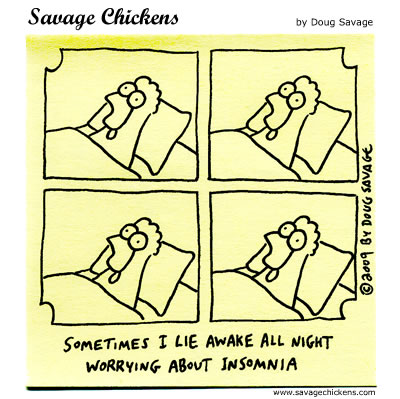…try sleeping between 2 and 6 am. Here’s why:
In 2003 a team of researchers with Stanford’s School of Medicine decided to look into sleep times and its effect on sleep-deprived people (like you and me). Now, we all know that everyone, or at least most people, need at least 7 to 8 hours of sleep. In this fast-paced, sensory-overloaded, troubled modern world however, many people have succumbed to insomnia or are sleep deprived for various reasons and causes. Some people just can’t fall asleep. While others cannot even if they want to. And this just wreaks havoc on the body, as it cannot get the right amount of downtime it needs to rejuvenate tired cells and organs.

So this team of researchers subjected 18 willing men to sleep deprivation (gasp), and tested to see whether the time in which they slept had an effect on their wakefulness and performance the next day. The result: subjects who slept from 2:15 a.m. to 6:15 a.m (the morning group) fared far considerably better than those who slept from 10:30 p.m. to 2:30 a.m. (the night group). The morning group got higher scores in the wakefulness tests, had less trouble falling asleep, and had better sleep than the other group. What's more, the study found that for it took 6 days for one member of the morning group to feel and act sleep-deprived; for the first 5 days of the study he felt and performed as if he were sleeping normally.
Of course, this is all preliminary, and because of the small sample size the study can be hardly called conclusive. Its results, however, hold a lot of promise for the future of sleep research. And it can be a boon for the millions of people worldwide who suffer from some form of insomnia (the U.S National Heart Lung and Blood Institute places the prevalence at 3 in 10 adults).
In my reckoning, it wouldn't really hurt to try.

In 2003 a team of researchers with Stanford’s School of Medicine decided to look into sleep times and its effect on sleep-deprived people (like you and me). Now, we all know that everyone, or at least most people, need at least 7 to 8 hours of sleep. In this fast-paced, sensory-overloaded, troubled modern world however, many people have succumbed to insomnia or are sleep deprived for various reasons and causes. Some people just can’t fall asleep. While others cannot even if they want to. And this just wreaks havoc on the body, as it cannot get the right amount of downtime it needs to rejuvenate tired cells and organs.

So this team of researchers subjected 18 willing men to sleep deprivation (gasp), and tested to see whether the time in which they slept had an effect on their wakefulness and performance the next day. The result: subjects who slept from 2:15 a.m. to 6:15 a.m (the morning group) fared far considerably better than those who slept from 10:30 p.m. to 2:30 a.m. (the night group). The morning group got higher scores in the wakefulness tests, had less trouble falling asleep, and had better sleep than the other group. What's more, the study found that for it took 6 days for one member of the morning group to feel and act sleep-deprived; for the first 5 days of the study he felt and performed as if he were sleeping normally.
Of course, this is all preliminary, and because of the small sample size the study can be hardly called conclusive. Its results, however, hold a lot of promise for the future of sleep research. And it can be a boon for the millions of people worldwide who suffer from some form of insomnia (the U.S National Heart Lung and Blood Institute places the prevalence at 3 in 10 adults).
In my reckoning, it wouldn't really hurt to try.








August 17, 2016 at 8:56 AM
nice tip for insomniacs .... I should try it
.... I can not say any thinks.... :)
Have a nice day. Bye
Regards from Young Entrepreneur
Tangki Fiberglass
Jual Septic Tank